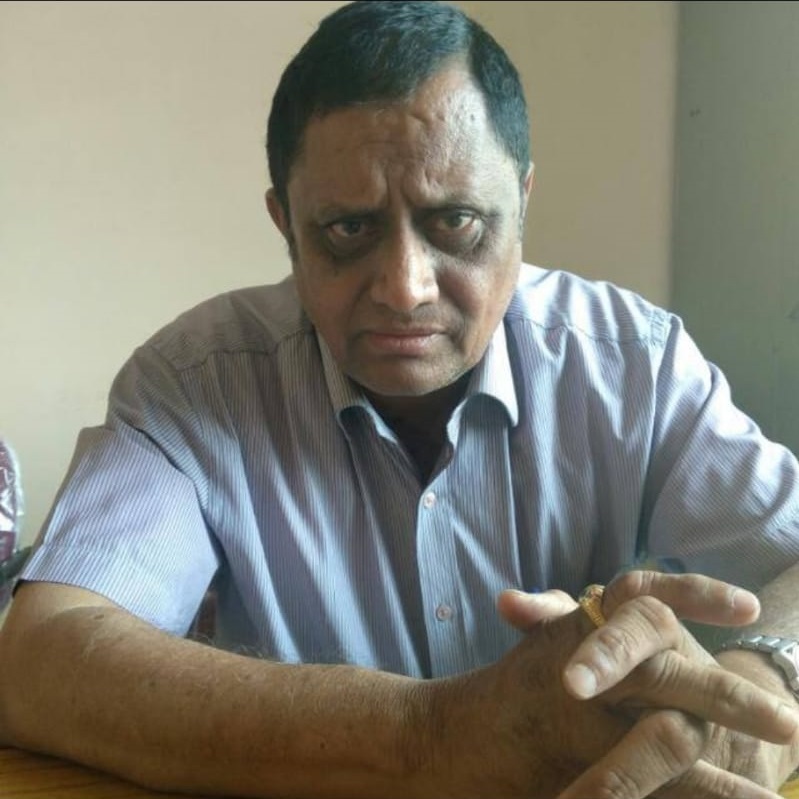Dr Narayan C DESHPANDE responds to ThinkWellness360 questionnaire:
Why and how did you think of becoming a doctor?
I always had a zealous, or ardent, desire to serve the sick, at large, and in the best way possible. I thought that the only profession that could help me accomplish my fervent yearning was being a doctor.
What made you think of, study and specialise in the system of medicine you now practice?
Conventional medicine has more than a few drawbacks, such as acute, long-term and, at times, dangerous reactions from medications, as well as deleterious, also cumulative effects, side- and after-effects, of certain medicines, in the body, especially in the treatment of chronic disease. Homeopathic treatment is free of such problems. This prompted and attracted me to this line of medicine and treatment as a profession; also career.
What has been your personal and professional experience as a doctor?
Any system of medicine that treats patients and their illness, or disease, without side-effects receives accolades from people and doctors alike. Homeopathy is one that personifies it. This has given me the greatest satisfaction, as also fulfilment, in the regard. So, I love to accept it wholeheartedly. I have successfully treated several inveterate cases of anal fissures, gastric disorders, tonsillitis, diabetic gangrene, among many other acute and chronic disorders.
What unique and special skills you think you have that has made the big difference for your patients?
I always make it a point to get into the details of every case, big, or small; minor, or major. I aim at delving into as many unique, or peculiar, symptoms and sensations of the patients, so I can arrive at the right homeopathic remedy, or ‘similimum.’ I try to get just as many mental and emotional, or psychological, symptoms in every case as possible too. As I have been teaching as a professor in homeopathic medical colleges, for several years, I insist that my students too should imbibe such tenets while taking every case, be it short- or long.
What is your best definition of optimal wellness and why?
I subscribe to the WHO definition. It relates to ancient as also modern Ayurveda: optimal wellness is the epitome of mental, physical, emotional and spiritual wellness.
Your best case?
A case of Polycystic Ovarian Disease [PCOD]. The patient was aged 22 years. She had irregular periods, hirsutism, hypothyroidism, and obesity [Stein-Leventhal syndrome]. She was relieved of most symptoms, and also related issues, after 2-3 months of homeopathic treatment. She is now happily married and has also conceived.
Your ‘not-so-good’ case?
A case of extensive vitiligo which I could not treat notwithstanding my best efforts.
What appeals to you the most?
Utmost patience, unprejudiced outlook in taking a case, as well as the meticulous selection of the right homeopathic remedy, along with focused professionalism. Absolute concentration is also must to treating every patient. This ought to be every doctor’s call, also duty.
What annoys you the most?
Patients not co-operating with the doctor, their instructions, treatment and/or self-treating, or self-medicating, themselves and blaming the doctor, or the system of medicine, for their own indiscretion, or imprudent ‘bravado.’
Your favourite book?
The Genius of Homeopathy, by Dr Stuart M Close, MD, and Lectures on the Theory and Practice of Homeopathy, by Dr Robert E Dudgeon, MD.
Your favourite joke?
Nothing specific.
Your favourite song?
Man re tu kahe na dheer dhare [Chitralekha/Mohammed Rafi/Sahir Ludhianvi/Roshan]
Your favourite movie?
Dosti
Your favourite TV, Netflix show?
Friends
Your other interests, or hobbies?
Listening to soft, good, melodious music, playing chess, and watching cricket.
Your goal in life?
To train as many students as possible and help them to become good, committed and professional homeopaths. To serve homeopathy, so long as I live.

